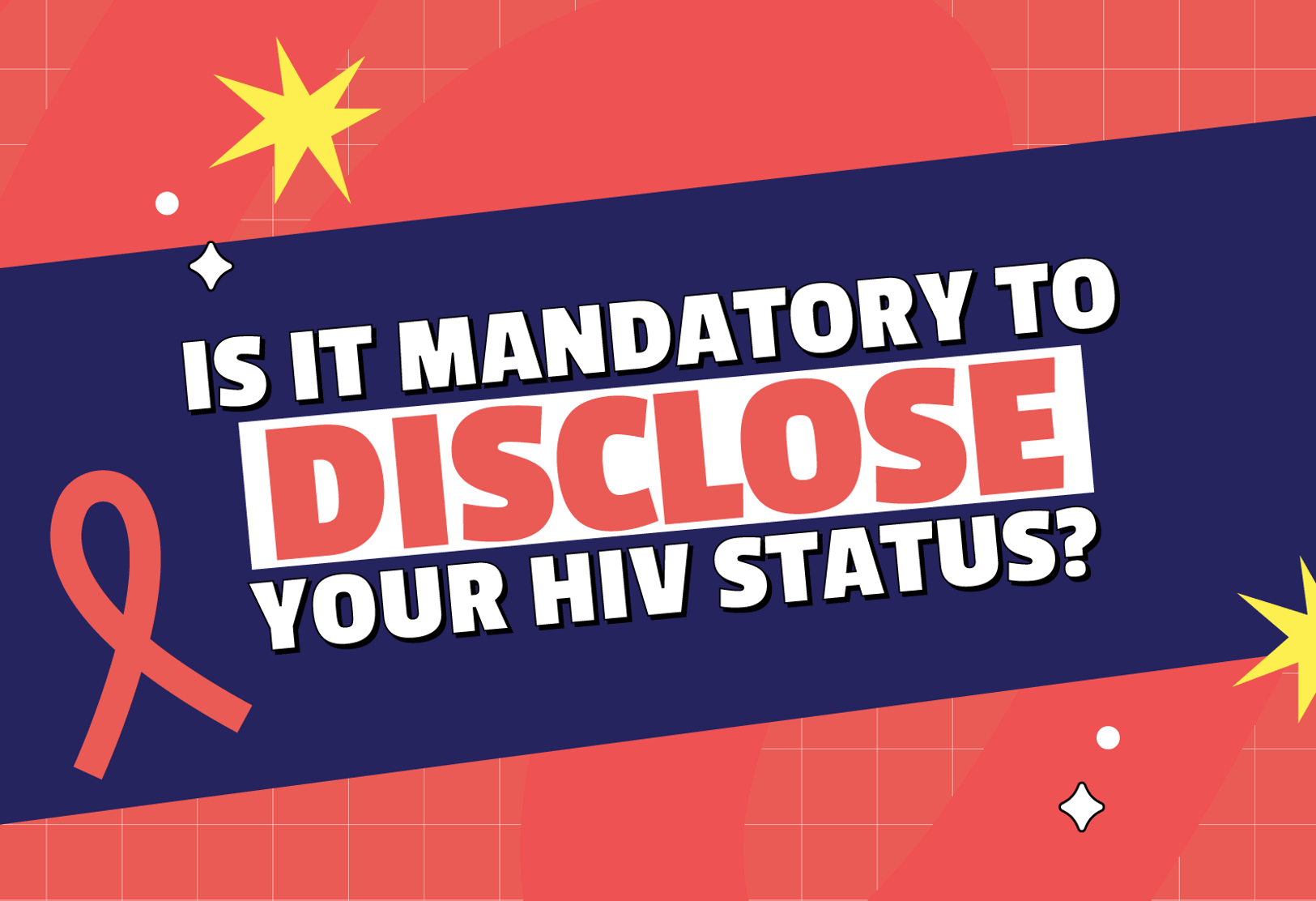Disclosing one’s HIV status is a deeply personal choice closely tied to bodily autonomy and the right to make decisions about our own well-being. However, the question of whether a person is legally required to disclose their HIV status varies by country and jurisdiction. In certain places, there are laws that mandate individuals to inform their sexual partners or companions about their HIV status. Nevertheless, outside of these specific circumstances, HIV disclosure remains largely a personal decision.
What is HIV?
HIV, or Human Immunodeficiency Virus, is a viral infection that affects the human body’s immune system, leaving it vulnerable to various diseases and infections. It is transmitted through bodily fluids such as blood, semen, vaginal fluids, and breast milk.
Once inside the body, HIV can progress to the advanced stage known as AIDS (Acquired Immunodeficiency Syndrome), characterised by severe immune system impairment and the onset of various illnesses.
You might be interested in: “Sexually Transmitted Infections“
Understanding HIV Treatment
While there is no cure for HIV, there are available treatment options that can help manage the disease and enable individuals to lead healthy and productive lives. Antiretroviral therapy (ART) is the cornerstone of HIV treatment. This approach involves taking medications that reduce the amount of HIV in the body, allowing the immune system to strengthen and recover.
Treatment for HIV typically begins as soon as the diagnosis is made, and it is crucial to start treatment as early as possible to minimise damage to the immune system and prevent disease progression.
With proper treatment and regular medical follow-up, many people can achieve and maintain an undetectable viral load, meaning the amount of HIV in their blood is so low that it cannot be detected by standard tests.
Sexual Partners or Companions
Informing your sexual partners about your HIV status may be uncomfortable but advisable to protect yourself legally and to enable others to make informed decisions about their health.
Regardless of legal obligations, maintaining open and honest communication with healthcare providers and close contacts can be crucial to ensuring effective HIV management and promoting overall health and well-being.
HIV treatment, combined with prevention practices such as condom use and pre-exposure prophylaxis (PrEP), can help reduce the risk of virus transmission to others. Additionally, seeking emotional and educational support can assist individuals with HIV in addressing the challenges associated with disclosing their status and managing the disease. Don’t hesitate to seek mental health professionals in your area who can support you through this process.
Confronting Stigma and Discrimination
Stigma and discrimination against people with HIV are significant challenges that affect their emotional and social well-being. Overcoming stigma and discrimination is crucial to promoting the health and well-being of people with HIV and their communities.
Educating yourself about stigma and discrimination and listening to the experiences of those who have overcome these barriers can be key to countering negative attitudes. If you are living with HIV, we encourage you to seek support groups in your area to avoid facing your concerns alone.
Mental Health and HIV
Living with HIV can generate considerable stress and impact mental health. Depression is one of the most common conditions among people living with this condition. Recognizing the signs of depression is crucial, and seeking professional help is fundamental. Talking to a healthcare provider, social worker, or therapist can be helpful in addressing related mental health challenges.
It is important to remember that society has made significant progress in HIV treatment, and many people can lead fulfilling and happy lives with the right treatments. Although it is normal to feel uncertain and fearful at first, it is essential to understand that there are various options to continue enjoying life fully.
Contraception Methods and HIV
People with HIV who wish to have children need to receive proper guidance and support from their medical professionals. It is crucial to address safe conception options, as well as potential risks for both the person who will become pregnant and the baby, and also consider options to prevent HIV transmission during pregnancy and childbirth.
You might be interested in information about: External condoms and vaginal condoms.
Rights and Support
People with HIV have fundamental human rights that must be protected and respected in all circumstances. This includes the right to privacy, medical confidentiality, non-discrimination, and access to quality healthcare.
Human rights advocacy organisations and community groups play a crucial role in advocating for and protecting the rights of people with HIV.
Additionally, social and emotional support from friends, family, and communities is essential to helping people with HIV face the challenges they encounter and live fulfilling and productive lives. Solidarity and mutual support are fundamental pillars in the fight against HIV and AIDS.
In conclusion, HIV disclosure, while not always legally mandatory, is essential to protect the health and rights of all individuals involved.
Furthermore, it is important to address the challenges of stigma, mental health, and family planning faced by people with HIV to promote their overall well-being.
By working together to address these issues with compassion and respect, we can move towards a future where HIV is a controlled and manageable disease for all.


